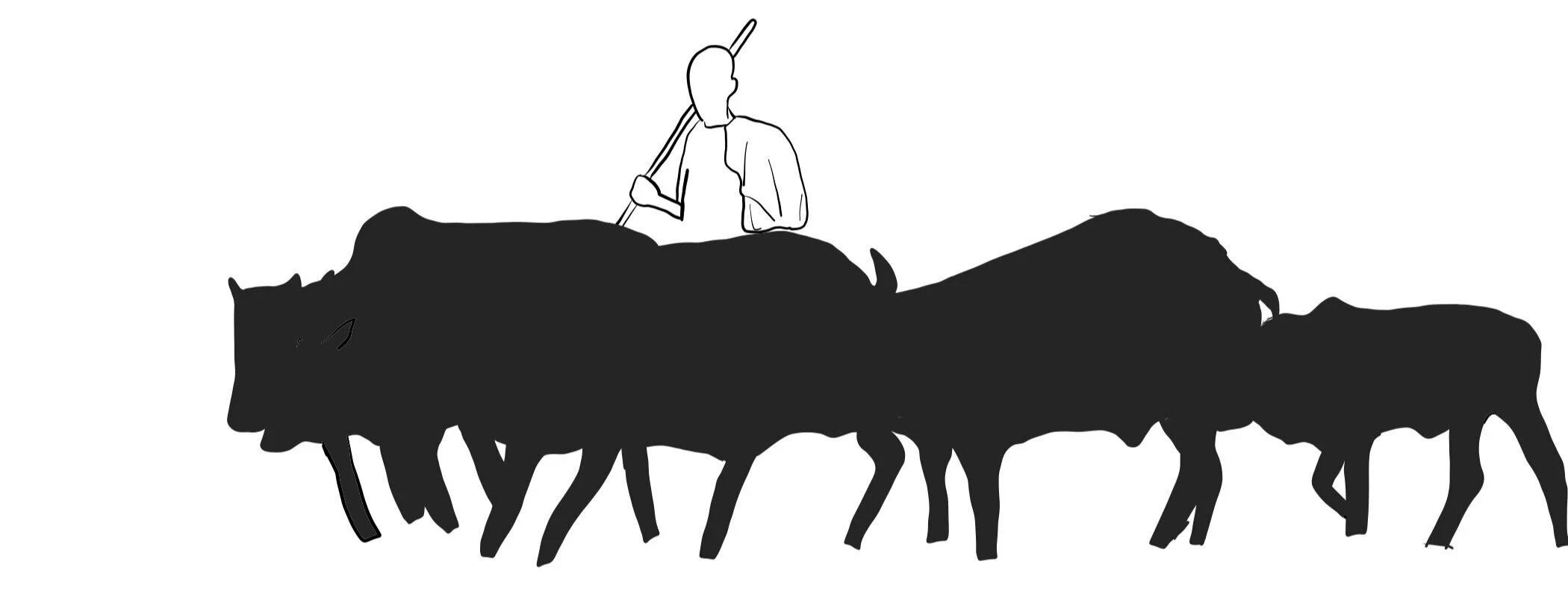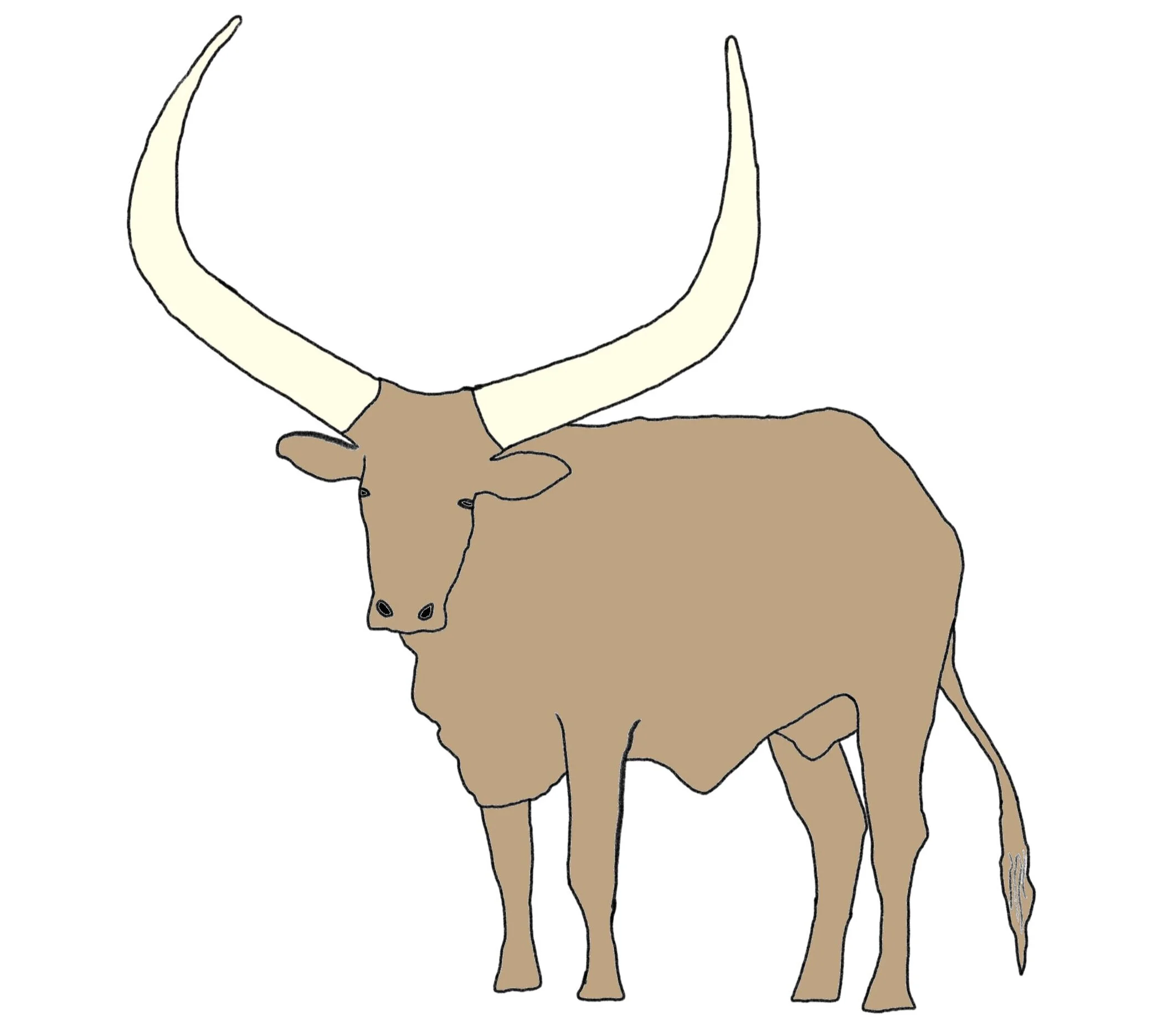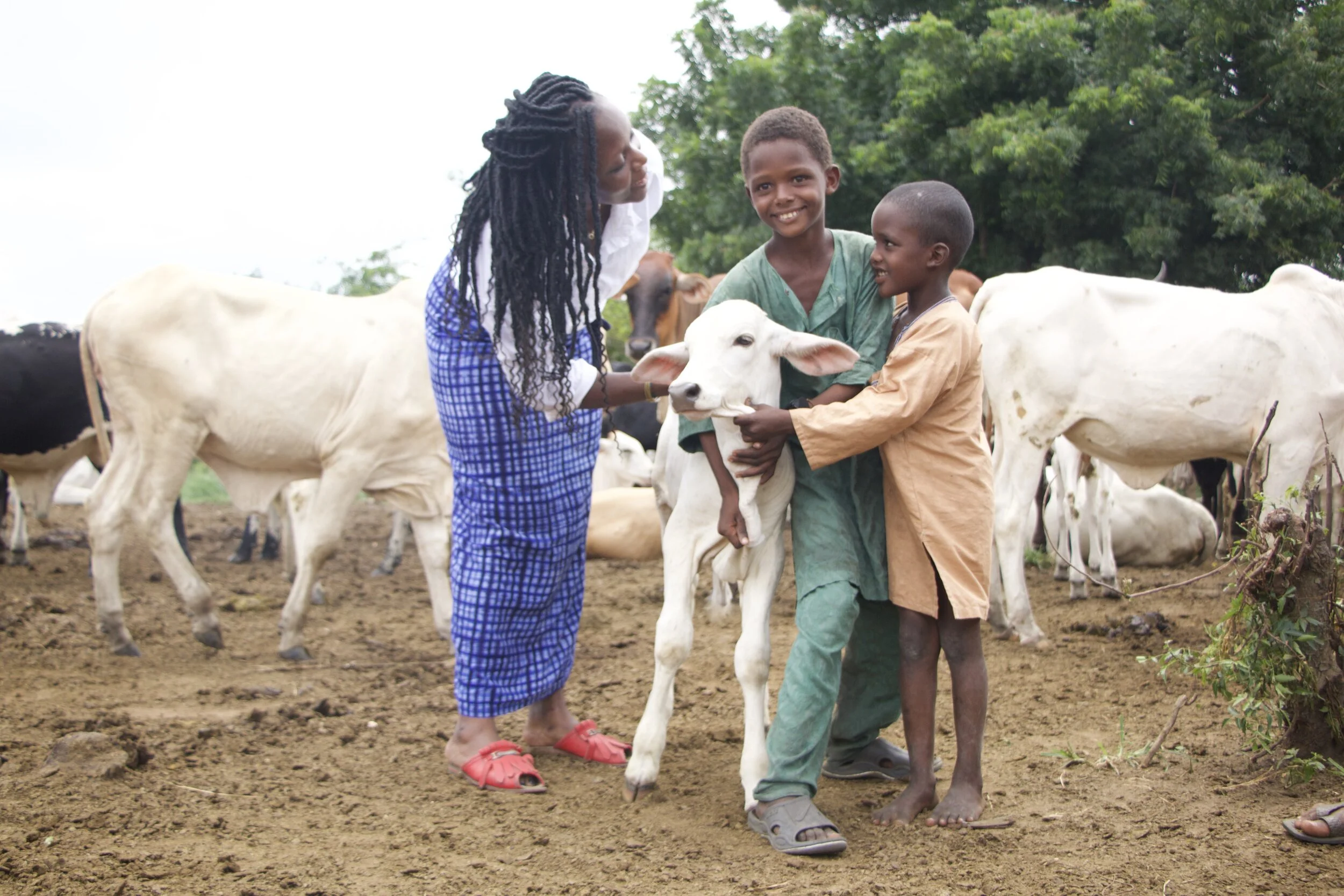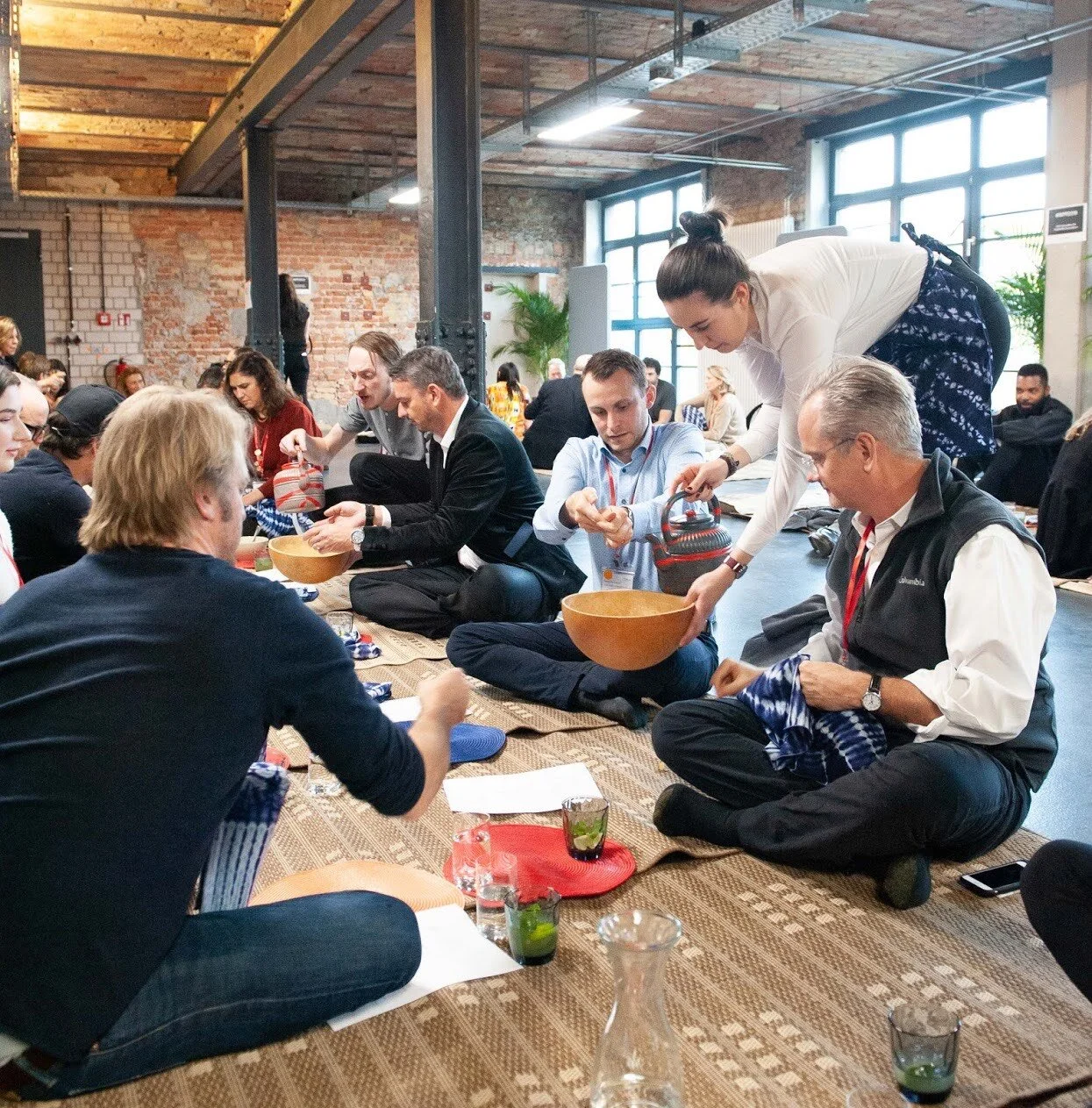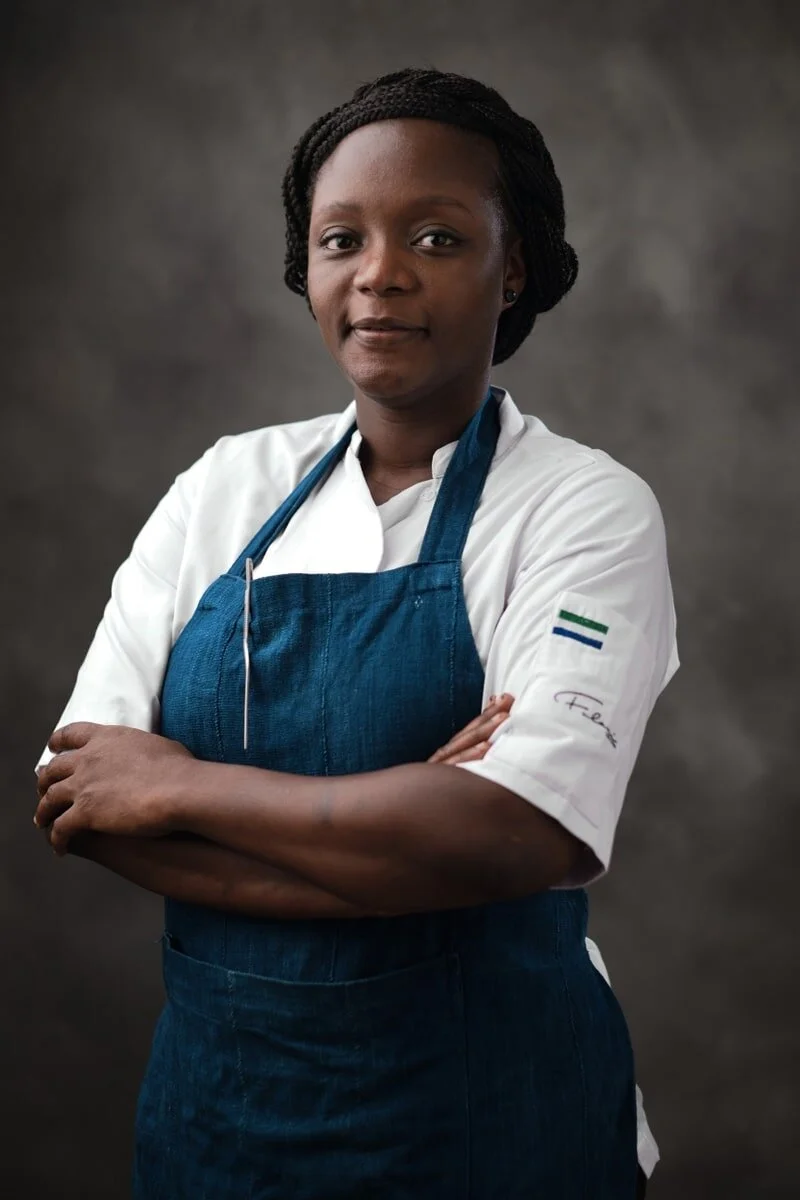Point of Origin Episode 22
Fulani Foodways
“Sometimes I feel like its [African Food] is not represented well…it is tweaked too much. I hope we can embrace it as it is, all its flavors, spiciness, and richness…the taste should be original.”
Chef Binta
On today’s episode we’re talking about Fulani foodways and cuisine with Chef Fatmata Binta, an ambassador for the ancient grain fonio and self described modern nomadic chef. The Fula, Fulani, or Fulɓe (fuhl-be) people are one of the largest ethnic groups in the Sahel and West Africa, widely dispersed across the region, and inhabiting many countries. They live mainly in West Africa and northern parts of Central Africa but also in South Sudan, Sudan, and regions near the Red Sea coast. Chef Binta is an indelible ambassador of Fulani food. Born and raised in Freetown, Sierra Leone, to first generation Sierra Leonean Fulanis of Guinean descent, Binta describes herself as a modern nomadic chef, and as you’ll hear in the episode, Binta is cooking the way her people have always done. Join us for episode 22 of Point of Origin as Chef Binta helps us answer: What is Fulani food?
Available on Apple Podcast, Spotify, & iHeartRadio
Highlights
( 00:00 ) Introducing Chef Binta
( 07:00 ) The Fulani Diet
( 09:15 ) The Practice of Sundrying and Dining on the Mat
( 10:30 ) Conflict between Fulani Cattlemen and Farmers
( 15:15 ) Dairy in the Fulani Diet
( 17:30 ) The Importance of Fonio
( 20:50 ) The Simplicity of Fulani Food
( 21:40 ) Chef Binta discusses African Cuisine as a Whole
( 26:30 ) Chef Binta’s Role as Ambassador for Fulani Cuisine
( 29:28 ) Closing Remarks from Stephen Satterfield
The Fulani way of Life
The Fulani, the modern nomadic herdsmen
The Fulani people are nomadic cattle farmers who travel across Africa. Spread from West Africa, to Central Africa and all the way to the Red Sea Coast, their homes are build to be easily transported and transient. Their communities are concentrated in many different countries including Nigeria, Mali, Guinea, Cameroon, Senegal, and Niger.
The Fulani Diet
The Fulani diet consists mostly of sun-dried ingredients that can be preserved for months. Because the Fulani people are often on the move, their diets rely on foods that are easily persevered. Idiosyncratic to the Fulani, most of their diet is heavy in dairy and milk. Other staples are starches and ground nuts, and grains like fonio, sorghum and corn.
Fulani Kitchen
Chef Binta is Promoting Fulani Cuisine to the World
Photo credit: Chef Binta
Chef Fatmata Binta combines her nomadic Fulani roots, classical training, love for rural life and farming. Her dishes and pop up dinners are authentic, modern and environmentally engaged.
By creating a traditional setting, telling you about Fulani culture, serving ancient grains, indigenous spices, soft live fulani music and dining under the moon and stars sitting on a mat, Binta triggers all senses and takes you to a cultural experience. Throughout the meal you will be treated to a traditional Attaya Tea Ceremony with flavors to pair with your meal progression while Chef Binta shares the history and traditions of the Fulani tribe.
At Fulani Kitchen Binta combines her nomadic Fulani roots, classical training and love for rural life and farming. Her dishes and pop up diners are authentic, modern en environmentally engaged. By creating a traditional setting, telling you about Fulani culture and serving ancient grains, indigenous foodways.
Fonio - The Ancient west african grain
https://www.fulanikitchen.com/about
Fonio, an ancient and super grain, is traditionally grown and consumed in West Africa. It’s gluten free, extremely nutritious, needs less water to grow, is disease and drought resilient and gives back nutrients to the soil. This little grain might possibly be one of the answers to food security and climate challenges to come. - www.fulanikitchen.com
Learn more about Fonio - Chef Pierre Thiam
https://www.pierrethiam.com/
Chef Pierre Thiam has been a prominent figure in bringing more awareness to Fonio. Before it found itself in American grocery stores, Thiam was smuggling the grain through NYC Airports. Eventually, in 2017, he started Yolélé, an organization that consisted of a co-op collective of West African famers. Through this company, he was able to begin importing Fonio to American grocery stores, and exposing the world to its benefits.
Fonio Jollof recipe
by Fulani Kitchen
“Jollof is very popular dish eaten throughout West Africa. Nigeria, Ghana, Senegal, they all think their fonio is the best but literally everybody everywhere cooks it differently, changing spices, vegetables, etc.
So can you! And so did we! Classically it’s made with rice. But these days that usually means imported rice from Vietnam. That’s why we cook it with fonio, an ancient grain which is indigenous to West Africa. Fonio to us is a super grain. It played an essential part in keeping Chef Binta and her family alive during the civil war in Sierra Leone. It’s gluten free and highly nutritious. And last but not least, it grows much faster, is better equipped against diseases and drought and gives more nutrients back to the soil than staple crops like rice and corn. That means this tiny grain might very well be an answer to climate & food security challenges are facing and a lifesaver again!”
A Note from Chef Binta:
“This recipe is inspired by Guinea fulanis, it’s our version of jollof that we prepare every time we are gathered as a family for weddings or celebratory events. I have been sharing it as a parting gift with a cup of fonio during most of our events outside the African continent, challenging people to try it at home and send us review.”
Photo Credit: Chef Binta
Ingredients
6 Servings
500 g — Fonio (or when not available, rice)
½ kg — Yellow Onions
1 liter — Vegetable oil
500 g — Fresh plum tomatoes
1 — Habanero pepper or any spicy chili (preference)
2 teaspoon — Curry powder
1 bulb — Garlic
1 little hand — Fresh Thyme leaves
1-2 cups — Chicken or vegetable stock
1 cup — Mixed vegetables, finely chopped (carrot, scallions, capsicum)
200 g — Tomato Paste
3 leaves — Bay leaf
Preparation
Chop onions in slices. Heat up a frying pan with oil on medium heat and bake the onions long long on low heat until they caralamize. Add curry powder and let it simmer for 2 min.
Blend garlic, tomato and chili together in blender to a pulp. Add the pulp to the onion and curry mixture and cook on medium-low heat until it’s thickened. (about 10 min)
Add tomato paste, bay leaf and salt to taste (you could add some allspice here if you like). And cook for 10 min on medium-low fire. Then split the sauce in half.
Add fonio to 1 half of the sauce, stir and simmer on a low heat and keep stirring for 3 min. And then add 1 cup / 2 cups (2 if the sauce is really drive and thick) of stock and thyme leaves and simmer for 10 min again. (if you cook it with rice you might need more stock and need to cook it until the rice is cooked.)
Add the finely chopped mixed vegetables. Cook till vegetables are cooked but still have a little bite. Serve the fonio with some of the extra sauce (the other half). Top with some thinly cut scallions and some grilled capsicum if you like.
Meet our Guest
About Chef Binta
Image Credit: www.fulanikitchen.com
Binta describes herself as a modern nomadic chef. Like her ancestors she has travelled to many countries and has worked with renowned African chefs. At Fulani Kitchen she combines her nomadic Fulani roots, classical training at the Kenyan Culinary Institute and love for rural life and nature.
Her passion to share African nomadic cuisine is based on her experiences as a child growing up during the darkest period of Sierra Leone’s history, the civil war. She experienced first hand how food can bring people together and bring down walls.
Learn more about African Cuisine
Listen to Season 2 Episode 11 Naija! What is Nigerian Food to learn more about African foodways.
In Point of Origin, Episode 11 we honor Black History Month by exploring Nigerian foodways, and unpacking #NAIJA, the proudly held generational moniker that bonds Nigerians. What is it and how is it expressed through food?
We’re joined by Chefs Tunde Wey, Yewande Komolafe, and Michael Adé Elégbèdé to discuss Nigerian food, the origin of Nigerian dishes, and how these chefs are championing their food to interrogate systems of power.


